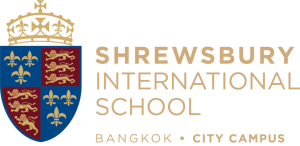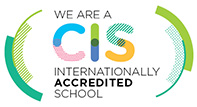TERM 1 REVIEW 2019-20
MEET THE HEAD OF MANDARIN
Experienced Mandarin teacher and leader Mr Michael Wu, has been appointed as Head of Mandarin at City Campus. Mr Wu has a Certificate for International Chinese Language Teachers from the Confucius Institute Headquarters, and has held numerous positions of leadership in education during his career so far. We asked Mr Wu to introduce himself to the school community:
What is your nationality and background?
I come from Tianjin, a coastal city in northern China. I graduated with my Bachelor’s degree in English Literature and Culture from Tianjin Foreign Studies University. I have a Master’s degree in Cultural Management from Chulalongkorn University in Thailand. I am a qualified Chinese language teacher and I also hold the licence of Teachers of Chinese to Speakers of Other Languages. I have taught in a variety of educational institutions in China and Thailand.
What inspired you to become a teacher? What do love about teaching?
I have been teaching languages since I was 18 years old. I enjoy the feeling of helping my students achieve. Communication is a powerful tool for us all, which is why I chose languages as my career direction. I see my teaching practice as a form of architecture, using it to build bridges between different countries, cultures and languages. Every sentence my students speak in their non-native language makes me proud.
What do you consider to be your greatest successes in your teaching career so far? What challenges have you overcome?
During my 10 years of teaching so far, my successes are always the students themselves. I am extremely proud of the high grades and prestigious university places my students have achieved over the years.
Whilst excellent academic results are important, it is not the only factor for me to consider in my teaching. My initial teaching philosophy was challenged by one of my Year 11 students, who was awarded an A* in his IGCSE test. We met for dinner a few months after his exams, and he told me he struggled to remember what he had learnt after his exams were finished. He told me that his studies had been tiring for him. I was surprised to hear his story, as he was a hardworking student and I not realised that he was frustrated in his learning. This conversation stuck with me, and I debated this issue in my brain for weeks. Why do we need to learn a language? Was my way wrong? Should I abandon past practices and rebuild my teaching philosophy?
I decided to construct a new method of teaching, starting with nursery-aged children. Early years students are like mirrors of the world - they will reflect everything that they see or hear. Working with younger learners inspired me to stop treating language as a subject and instead to develop a holistic, topic-based curriculum. I encouraged my students to learn Mandarin in a natural environment. I focused on building the children’s confidence in speaking a foreign language. I firmly believe that if students see that learning Mandarin is interesting and useful, they can be easily intrigued and inspired by their teachers to absorb even more. I believe that building lasting bridges between languages and cultures will equip our students for their future, just as much as high exam results.
How and when did you find yourself in Bangkok?
I began teaching in Bangkok in 2012. It is an amazing city to settle in. The main reason that I decided to stay is the people. I have found Thai people to be kind and welcoming and I made a lot of Thai friends in Bangkok since living here. The city has become my second home.
I have enjoyed working in the international teaching field here, and I have taken up leadership posts in the Mandarin departments I have worked in. I particularly relished the opportunity to build a Mandarin curriculum from scratch in an international kindergarten, designing a topic-based Chinese curriculum for Early Years children, with many activities focussing on Chinese culture and traditions.
What most excites you about your new role at City Campus? What are your plans for the Mandarin department at City Campus?
Shrewsbury’s approach to learning is the perfect compliment to my teaching philosophy. Enjoyment, intrigue and exploration are central parts of the Shrewsbury ethos, and my responsibility as City Campus’s Head of Mandarin is to continue leading our curriculum in this way. I have been continually impressed by the exam results the secondary students achieve at our Riverside campus, and my role at City Campus at primary level is set our students on the path towards lifelong learning. My team and I cannot wait to continue strengthening our Mandarin learning environment for our primary school children at City Campus.
Our Mandarin curriculum will be designed in conjunction with based on City Campus’s termly topics. It is important that Mandarin is not isolated from other subjects. We plan to create a ‘immersion environment’ for our students, by
bringing authentic Chinese culture to the school.
Differentiation is also one of our main focuses in this year. Our student’s ability and level vary, meaning we must use different strategies for different groups, to allow us to cultivate all children’s learning.
Why do you think modern foreign languages are such an important part of the curriculum at City Campus? Why is it important for non-native students to learn Mandarin?
“If you talk to a man in a language he understands, that goes to his head. If you talk to him in his language, that goes to his heart.” ‒ Nelson Mandela.
I refer to these words from Nelson Mandela to emphasise that learning a language is not about obtaining a new skill. It offers our students a key to open the door to many new worlds.
Statistically, Mandarin is the most spoken language in the world, which has 1.1 billion speakers. It means that 1 in 7 human beings on our planet are speaking Mandarin. A fluency in Mandarin and English is the gateway to a whole host of global possibilities, particularly in culture, travel and business.
China is a country with 5,000 years of history. Its culture and its philosophy have influenced all Asian countries in some way. Learning Mandarin culture holds just as many benefits as learning the language.
In addition, China has become the second biggest economy in the world, and it offers great potential in globe trading. Our non-native students have opportunities to experience authentic Mandarin immersion at City Campus, giving them the tools for an exciting future.



